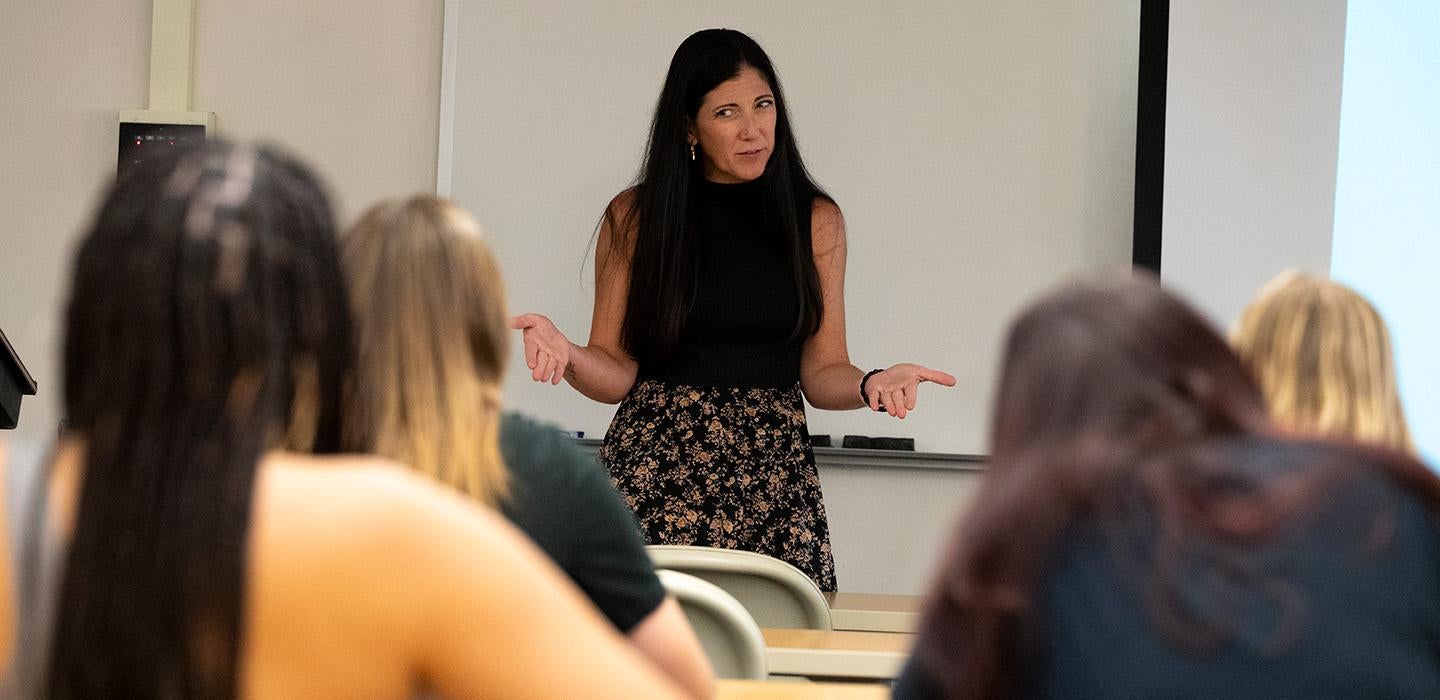
Subscribe to Pittwire Today
Get the most interesting and important stories from the University of Pittsburgh.In an effort to reshape the core of Pitt's undergraduate experience, the Office of the Provost has launched a General Education Task Force.
A Jan. 29 kickoff luncheon in Alumni Hall led by Belkys Torres, associate vice provost for inclusive excellence in education, marked the official launch of the 50-person group focused on preparing Pitt students for the evolving challenges of the 21st century.
The luncheon served as an informational brainstorming event in which faculty, advisors, staff and students from across schools and campuses discussed potential strategies to enhance undergraduates’ academic experiences and improve their learning outcomes before they declare a major.
Interim Provost and Senior Vice Chancellor Joe McCarthy, who spearheads the interdepartmental effort, said the project will be a large and complex undertaking, but it will ultimately lead to transformative changes benefiting students.
“This is the right time to do this for a number of reasons. A critical point for us to address, at the present time, is that the access and affordability of a Pitt education has become increasingly important over the last five or six years. When you look at today’s Pitt students, they’re incredibly intellectually curious,” McCarthy said. “With the increasing intellectual curiosity of a typical Pitt student, having different general education curricula across different schools has resulted in some issues in recent years. We have seen extended time to degree, which can lead to increases in debt load and artificial deflation of our graduation rates. We’ve also seen difficulty in building articulation agreements, which impacts accessibility for our transfer students.”
The reform, which is in the beginning of its first phase and is expected to be completed by the 2025-26 academic year, seeks to create a unified, measurable and flexible curriculum that aligns to the University’s strategic plan.
McCarthy noted that Pitt’s academic records showed most students declare multiple majors, each with different general education curricula requirements to navigate. This project aims to fix that.
Over three years, the task force — organized into working groups focused on curricular design, operation and implementation, and administration and assessment — will work to streamline degree planning, reduce financial burdens and foster interdisciplinary exploration.
Key objectives will include first redefining the 2006 Council of Deans vision of Pitt’s overarching learning outcomes and then assessing the viability of a unified set of general education requirements across all undergraduate schools and campuses.
This project will not prevent specific schools or individual academic units from requiring “extended” general education requirements to meet their unique needs, Torres said. “Instead, this project would assure that the (minimal set of) foundational requirements across all units are consistent and transferable across the University.”
Torres said this first year will be primarily focused on benchmarking, information gathering and fostering interdepartmental engagement among Pitt’s various stakeholders. More events and listening sessions, including a March 19 town hall, are planned as work gets under way.
— Donovan Harrell, photography by Tom Altany


